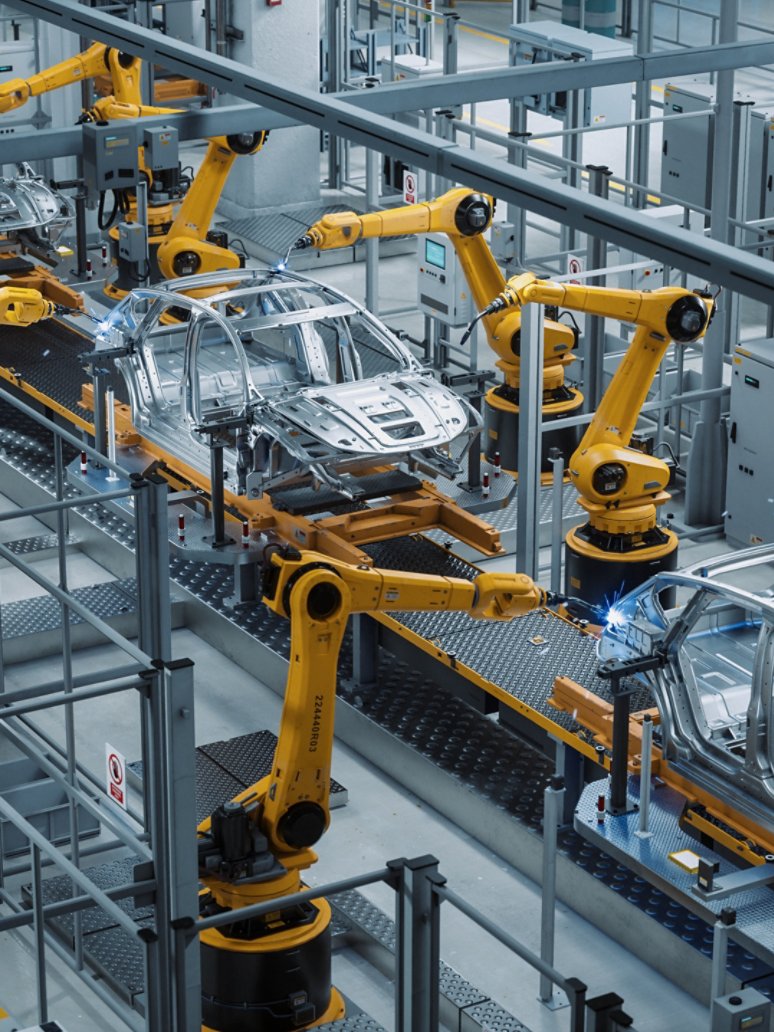
The automotive industry is changing fast.
Disrupted supply chains, connectivity and the electrification of vehicles are forcing automakers to rethink how they operate. In fact, some companies are turning to digital technology to transform their organizations. But reimagining a business model and simplifying a global IT estate isn’t easy — it requires technical expertise.
“We’re helping auto companies accelerate their modernization by focusing on the manufacturing process before a vehicle leaves the production floor,” said Stefan Blache, the practice leader for the manufacturing, communications and energy markets at Kyndryl.
Here, Blache shares why Kyndryl is optimistic about the automotive sector and the trends that will redefine it in the years ahead.
How is technology impacting the auto supply chain?
It’s no secret vehicle prices have been rising — and what we’re hearing from our automotive customers is that the cost pressure on many manufacturers is expected to continue well into the future. Obviously, the industry is continuing to navigate the chip shortage, which has impacted production and led to high inventory costs and backlog. Interruptions in global supply chains and subcontractor performance have also affected automotive companies. The good news is that technology is enabling digital transformation for most companies, whether it’s planning, tracking and tracing the supply chain, using 5G to modernize network connectivity within the plant, improving sustainability or making systems more cyber secure.
You mentioned sustainability. As auto makers focus on their environmental impact, how must their software and technology evolve, too?
Manufacturers are shifting to cleaner energy generation throughout the production process. That will only intensify as environmental and sustainability regulations force across-the-board reinventions of what gets made, and how. As vehicles become much more complex — and the requirements for chips increase — additional IT skills will be needed to optimize the user experience and ensure vehicles run more efficiently.
Are you referring to electric vehicles, in particular?
Yes. As more consumers embrace EVs, it becomes critical for those vehicles to communicate with the charging grid and relay information with low latency. And an expanding EV charging infrastructure will only help to speed up adoption.
How are car manufacturers using data?
Companies are embracing innovative technologies in all areas of the business, such as simulation testing of vehicles, operational efficiencies, predictive maintenance, autonomous vehicles or enhancing in-car experiences. All of this helps to improve passenger and vehicle safety. Safety is highly regulated and vital to the success of automotive companies. Safety failures or product defects could result in additional costs for the manufacturer.
With consumers now demanding connected vehicles, what role will 5G play?
Cars are becoming more connected and generating massive amounts of data. 5G technology with Internet of Things (IoT) brings opportunities to improve processes, as high-speed data transfer and low latency can mean quicker response times and better reliability to advance safety and innovation. Similarly, as investment in smart highways and smart roads goes up, so will the requirements for vehicles to interact with them.
Does more automation and connectivity pose more automotive cybersecurity challenges?
As real-time data transfers from the vehicle to the cloud to the manufacturer, it becomes even more important to reduce interruptions and to stay ahead of bad actors. Companies are continuously upgrading cybersecurity systems and leveraging data analytics and predictive modeling to address the complexity of connected equipment, systems and products to mitigate risk across their organizations.
What is Kyndryl doing to help automakers?
We’re helping automotive companies embrace cloud technologies and better connect data across mission-critical operations — including manufacturing plants, research and development, and sales operations — to improve efficiencies and customer experiences. A modern IT infrastructure must be assembled from best-in-class components and managed by the best people — Kyndryl offers both.


